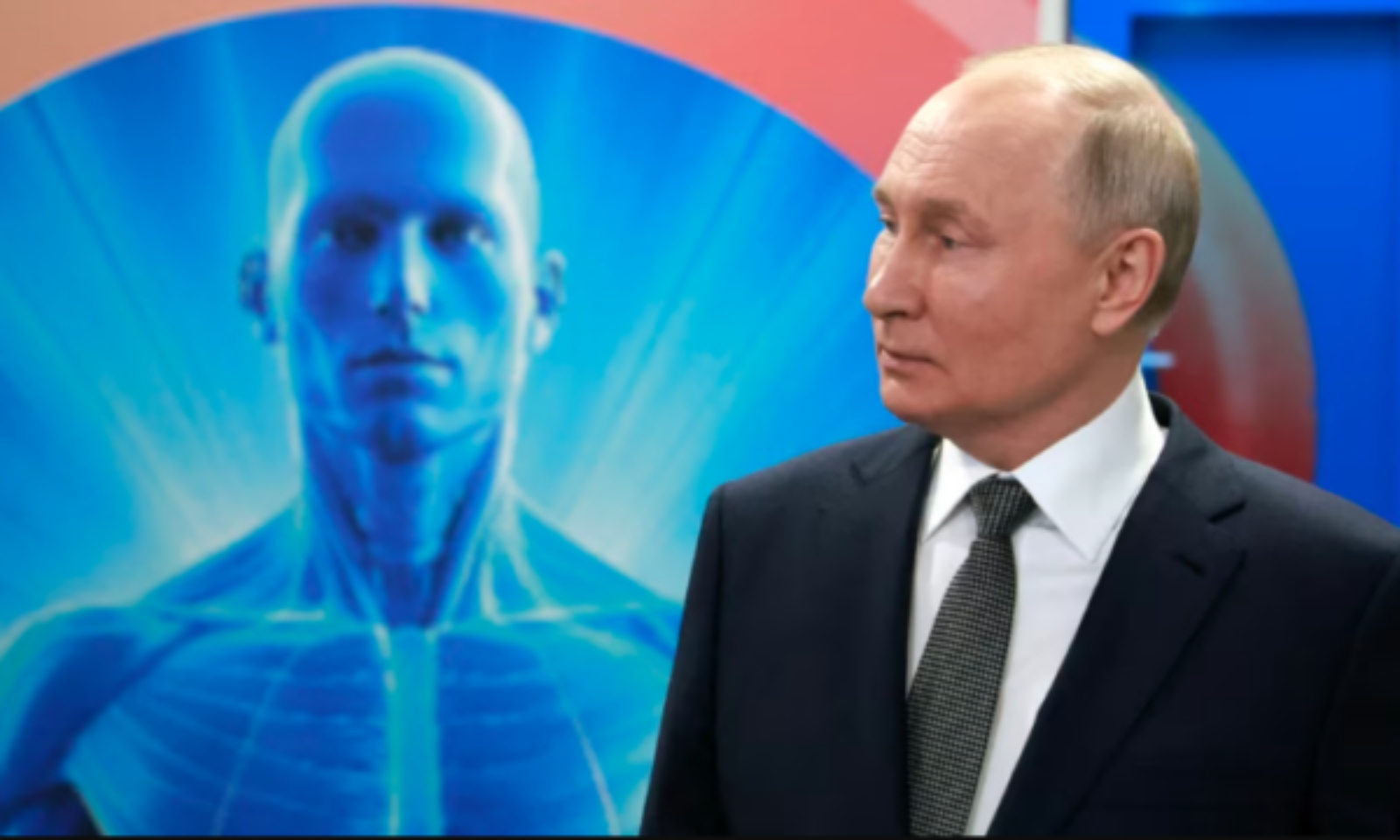In February, Russian President Vladimir Putin delivered the keynote speech at a conference titled “Modern Medical Technologies: Early Challenges of Tomorrow.”
“We have established this forum to discuss promising solutions that are emerging and being tested now, but this will soon profoundly change… people’s lives,” said Putin, 71, pausing several times to clear his throat.
The focus of Putin’s speech was the announcement of Russia’s “national project,” the 14th of its kind. This project is named “New Technologies for Health Preservation.” National projects are multi-faceted government-led initiatives aimed at improving key areas such as demographics, education, agriculture, and healthcare. They were introduced by Putin in 2005 and have been a continuous part of his uncompetitive election campaigns.
On May 16, about a week after Putin was inaugurated for his fifth term as president, Deputy Prime Minister Tatyana Golikova officially presented the new project and announced that it will commence in 2025.
Golikova emphasized that Russia’s “demographic trends” have created “new challenges for healthcare,” which, in turn, could aid in the development of “advanced medical technology pathways.”
Specifically, she mentioned technologies for slowing down cellular aging, neurotechnologies, and “other pathways for increasing longevity.” A key aspect of the new initiative will be working on “future biomedical technologies for healthy and active aging,” reported the state news agency RIA Novosti.
The focus on slowing down aging and increasing longevity has attracted attention in medical circles.
The new national project reflects “the whims of a political bureau that is growing old,” said a specialist at a Moscow hospital.
“Everyone is aging, including politicians,” he said. “Anti-aging therapies are very popular, and the conditions for introducing new technologies are favorable.”
A recent study by Systema, a Russian research unit of Radio Free Europe, and the émigré media outlet Meduza, has analyzed Putin’s new national priority project and looked at some of the main ideas.
“They Wanted the Answers Yesterday”
The budget for the new national project has not been disclosed. According to a summary by RIA Novosti, the project aims to “save 175,000 lives” by 2030.
Another goal of the project is that “the percentage of medical treatments using new medical technologies and innovative medical products” should reach 10 percent within five years.
In early June, the Department of Science and Health Care Innovation of the Ministry of Health sent a letter to Russia’s leading research institutes, requesting prompt proposals for grants in the following areas: development of medical products aimed at reducing cellular aging; development of new neurotechnologies and relevant medical products aimed at detecting and treating sensory and cognitive impairments; development of methods for managing the immune system based on its role in the aging process; and development of new medical technologies based on bioprinting.
Bioprinting uses living cells, proteins, and other raw materials to produce human tissues for healing injuries and diseases.
At the Burdenko Hospital in Moscow in December 2023, doctors performed the first surgery using bioprinting on a patient.
The letter, a copy of which was obtained by Systema and Meduza, was confirmed by two doctors working at medical-research centers and an employee of an academic institute. They expressed surprise at the urgency of the request.
“We were asked to send all our ideas immediately,” said one of the doctors.
“The letter came today, let’s say, and they asked for answers yesterday,” he added.
“To be honest, this is the first time in my life I’ve seen something like this,” he continued. “Usually, for a national project or a federal program, there is a series of meetings with various specialists, and everything is discussed publicly,” he said.
The other doctor said he was “shocked” by the letter.
“It seems that for now we have no one to deal with except our ‘old cronies’” he said, referring to the old circle of leaders who have ruled for 25 years under Putin as president or prime minister.
“Now [with the ongoing war in Ukraine], we are supposed to stop everything else. The cynicism is incomprehensible,” he added.
Sources who spoke to Systema and Meduza said they have not yet responded to the Ministry of Health’s call for proposals.
“Modern research, like what they mention in this national project, is quite expensive,” said a Kremlin-linked source. “It requires a lot of money and resources. Developing new therapies costs billions of euros, which no national project can afford these days.”
“One Servant”
A Kremlin-linked source told Systema and Meduza that the origin of the new national project was “an exaggerated obsession fueled by lobbying.”
“This is Mikhail Kovalchuk, who speaks enthusiastically about eternal life and the ‘Russian genome’,” said the source. “He ran to the president.”
Kovalchuk, 77, is a physicist and the older brother of billionaire businessman Yury Kovalchuk, described as “Putin’s personal banker” and who has been closely connected to Putin since Putin was deputy chairman of St. Petersburg in the early 1990s.
Mikhail Kovalchuk is president of the Kurchatov Institute, a nuclear research institution in Moscow, and has been a corresponding member of the Russian Academy of Sciences since 2000. Last year, he was appointed president of the Moscow Polytechnic Museum.
Mikhail Kovalchuk participated in the St. Petersburg International Economic Forum in June 2021.
Three sources knowledgeable about the development of the new national project also mentioned Kovalchuk as a possible initiator of the idea. Kovalchuk is already heading the federal genetics program, in which Putin’s eldest daughter, endocrinologist Maria Vorontsova, plays a significant role.
In a bizarre speech in 2015, Kovalchuk accused “foreign elites” of trying to hijack the “evolutionary process” to create “a servant human.”
Those people, he said, would have “limited consciousness,” their reproduction would be “managed,” and they would be fed “cheap food… from genetically modified organisms.” He did not provide any evidence to support these bizarre claims.
Russian media have often reported that Putin believes in such ideas.
“You can already imagine, and not just theoretically, that a person could create people with a specific set of characteristics,” Putin said in 2017. “They could be a math genius, or a great musician. Or they could be a soldier, a person who can fight without fear, or without feelings of compassion, regret, or pain.”
“By All Means”
In October of the same year, Putin claimed that foreigners were systematically and professionally collecting “biomaterials” from Russian citizens.
“Why are they doing this?” he asked.
In 2009, Kovalchuk’s institute conducted a project to “decode the Russian genome.”
He has consistently spoken about the desire to live a long and productive life.
His views on the subject have been influenced by Konstantin Skryabin, who worked under Kovalchuk at the Kurchatov Institute on the Russian genome project.
“We [scientists] like to discuss the problem of human immortality,” said Skryabin.
It seems that the latest national project of Putin on New Technologies for Health Preservation is the result of such discussions, agreed some experts interviewed by Systema and Meduza after reading the letter from the Russian Ministry of Health.
“The big boss has assigned the task,” said a researcher at a Moscow research center. “And the bureaucrats have taken on its fulfillment by all means.”
*NOTE: Since the Russian Government has declared RFE/RL as an “undesirable organization,” RFE/RL has hidden the identities of its sources in Russia to protect them from persecution.








